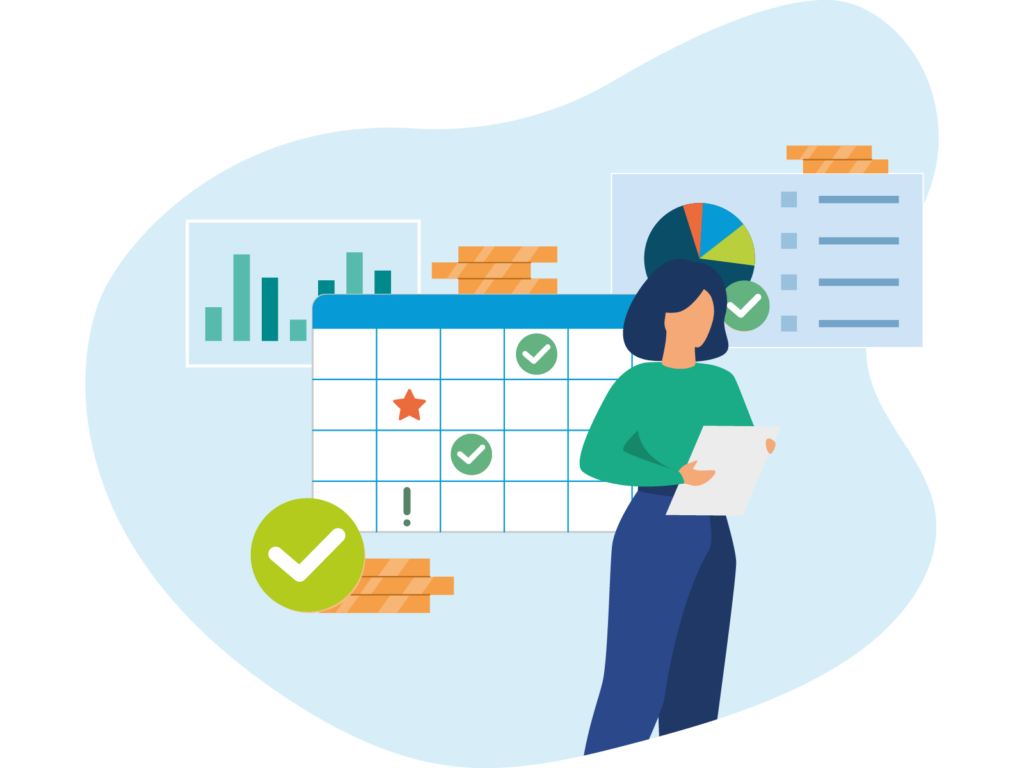What does a good finance system look like?
The core output of any finance system is reporting, with the aim of answering the key organisational questions of: Where do we spend? And why did we spend it? As well as accurately highlighting where this could change. A finance system that truly works for a housing organisation is one that frees up capital from processes to services.
The provision of housing costs money and providers spend an absolute fortune. In my time, I have found that whilst organisations manage their income well, they often don’t manage their spend with as much control. A core aim of ours at MRI Software is to help housing providers manage their spend better and gain back time and money. Below, I’ll attempt to outline the key elements of a good finance system.
Organisational backbone
Finance teams are sometimes seen as a back-office overhead and even at times, an afterthought to the delivery of homes. In reality, a vast majority of the data that is ever produced and acquired represents pounds and pence and making good sense of that is the remit of finance teams and the systems they use.
Finance teams are a core part of how each department can achieve its goals. Successful housing providers of the future will protect their viability by engaging finance teams as they build out their services.
Compliance
A huge part of a finance team’s role is to assure organisational compliance while staying abreast of emerging legislation. There is the potential for disastrous consequences with HMRC, which can even lead to criminal action against Finance Directors.
It’s the sort of thing that keeps them awake at night – and the kind of thing that a competent finance system should cover; getting those figures out of the system, doing adjustments and assisting with the big challenges. For example, those around making tax digital and assisting with an ‘Audit Ready Everyday’ way of working.
One single system
To understand what makes a great finance system, it’s worth defining some of the elements of a bad finance system. The chief mistake is to still be working offline on spreadsheets. Not having a single version of the truth can lead to the increased likelihood of errors. I’ve seen instances where housing finance teams have lists of disputed invoices recorded offline, where they are parked outside of the general finance reporting, and where they might get lost, float or raise questions for auditors.
In MRI solutions, a user can dispute any invoice on the system, meaning that it won’t be allowed to be processed. Nothing will be paid that hasn’t been properly approved. With this system, the risk of errors gets taken away and there’s always an audit trail of who approved what and why.
Worse than spreadsheets, there are still organisations out there that take a physical approach for payables invoicing, printing them off and writing approvals, as opposed to having them electronically stamped amid workflows. A physical approach just adds extra steps, limiting efficiency, leaving more room for error, and wasting resources (and in the end money!)
Integration
MRI systems for finance can work alone, but also can be integrated across our own product suites as well as third-party systems. This trend from MRI Software is only set to continue, with us delivering fully connected organisations for our customers. What we do here is different to other suppliers within social housing – and that is using ‘best of breed’ products.
Our finance systems stand on their own and that gives us a depth of functionality that’s unique in the sector. For example, our finance solutions are not just a set of modules that complement a repair (or other) system. The key to making that work is integration; a core competency that our Services Team are deeply experienced in.
An example of this in action could be to include rent information coming into the finance system or repairs information being passed between the finance system and repairs for approvals. MRI finance systems can do that with any other repair system. This means the least amount of disruption for teams as housing providers change their processes and solutions.
Information organised well
A good financial system also assists in presenting complex financial information in ways that can be read by different audiences who may not be as data or finance savvy as finance teams. In the near future, our systems will allow a Chief Executive, for example, to drill into financial KPIs and see reports via different organisational personas.
Evidence for action
The last function of a great finance system is evidence. I once visited an organisation serving a deprived area of a UK city. The organisation was dealing with a lot of broken windows. They needed to report on this and address the issue in the quickest and most cost-effective way possible. The outcome was the housing provider partnering with a contractor rather than dealing with reactive costs, such as boarding up windows before replacements were arranged. This ultimately saved them a huge amount of money.
A great finance system allows us to do that kind of reporting, to consolidate and facilitate saving money. If that money is saved at the back-office point, what could that provide elsewhere in the organisation for residents? Could that mean extra repairs? Or some boilers being replaced and families being warmer in the winter? Or helping an organisation on their road to achieving net zero?
So, what does a good supplier look like and what should you be looking for? In my view, your supplier should understand what needs to be derived from that system, then provide day-to-day support – helping your team get the best out of the system in a reactive and personal way. Lastly, and something that is unique to MRI Software, would be holding user sessions. The groups we run have a peer-to-peer network with over 200 participants, enabling us to build better finance systems together.
If you would like to hear more about the functionalities and the support infrastructure of our solutions, please contact: socialhousing@mrisoftware.com
Article by Ivan Blythe, Senior Solutions Architect, MRI Software
Gaining Control of Procurement with Spend Management
Designed for MRI Open Accounts users, discover a new spend management tool from our partners Advanced. Supporting transparency and better management of your spend across suppliers, contracts and general procurement processes.

